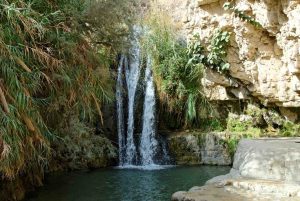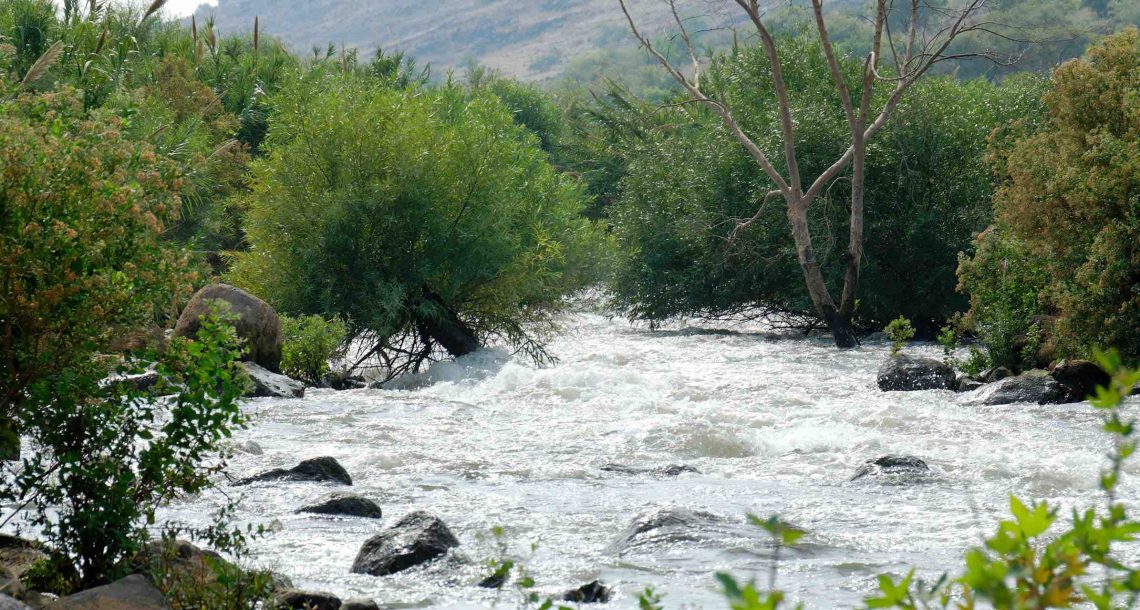by Bruce Okkema & Lois Tverberg
Then Moses raised his arm and struck the rock twice with his staff. Water gushed out, and the community and their livestock drank. But the LORD said to Moses and Aaron, “Because you did not trust in me enough to honor me as holy in the sight of the Israelites, you will not bring this community into the land I give them.” Numbers 20:11-12
Have you been wondering about this question? The Lord had clearly been developing Moses throughout his lifetime for the specific task of leading the Israelites out of Egypt and into the promised land. God had rescued Moses as a baby from Pharaoh’s edict to drown the Hebrew boys in the Nile. Then, through Pharaoh’s daughter, he had been raised in the royal palaces where he learned leadership skills and had access to the best education in the world. As a shepherd, Moses had learned how to protect a flock in the harsh desert while finding food and water, essential skills for what was to come. Then there was the call at the burning bush, the miraculous signs, the plagues, the deliverance, and all these years of leading this difficult people…
This story has puzzled Christians for ages: how the seemingly small sin of striking the rock could have made God so angry as to deny Moses the goal for which he had been raised. One answer comes from understanding what Moses’ actions would have meant to the people of his time.
Both the Egyptian and Canaanite religions believed that there were many gods. These gods were not supreme in power, but could be manipulated by invoking spiritual forces even more powerful than them. It was believed that by using incantations, occult magic, and fertility rites, people could force these spirits into obeying their will. God made it very clear to the Israelites that he was supreme and they must never make idols or do anything that treated Him this way.
Moses shouts angrily, “Listen, you rebels, must we bring you water out of this rock?” By using the word “we,” he attributes to himself and Aaron the power to give them water, suggesting that he and Aaron would use pagan rites to force God into giving them water, rather than publicly acknowledging the Lord as the supreme power.
In that one weak moment, he undermined all of what God had been teaching them about his absolute sovereignty. In Moses’ desire to show his own authority, not only did he fail to give God the glory, but to the Israelites who had grown up in paganism, he was acting as an occult magician who controls the spirits. This was extremely serious to the Lord, especially because it is a public sin. This underscores the responsibilities of leadership.
God demands that we always treat him as sovereign, so he did not revoke this severe punishment for Moses. But, the story does not end there. In his kindness, God honored his dedicated servant by showing him a vision of all of the land of Israel. The story ends with these beautiful words from Deuteronomy 34:
“Then Moses climbed Mount Nebo … There the LORD showed him the whole land and said to him, “This is the land I promised on oath to Abraham, Isaac and Jacob when I said, `I will give it to your descendants.’ I have let you see it with your eyes, but you will not cross over into it.” And Moses the servant of the LORD died there in Moab, as the LORD had said. He buried him in Moab, in the valley opposite Beth Peor, but to this day no one knows where his grave is … Since then, no prophet has risen in Israel like Moses, whom the LORD knew face to face.”

 In this story we find the Israelites “grumbling” to Moses and Aaron about their present circumstances. The Hebrew meaning behind this translation conveys a much stronger picture, that of a riotous mob wanting to kill their leaders. I find myself quickly judging the Israelites, thinking that since they had just been brought out of the land of slavery, how could they be complaining already? After all, they had seen the mighty hand of God on the night of Passover, they had experienced the parting of the waters of the Red Sea, manna appeared with the dawn, quail fell from the sky, and they had benefited from many other miracles. How could they be so ungrateful as to be complaining about thirst?
In this story we find the Israelites “grumbling” to Moses and Aaron about their present circumstances. The Hebrew meaning behind this translation conveys a much stronger picture, that of a riotous mob wanting to kill their leaders. I find myself quickly judging the Israelites, thinking that since they had just been brought out of the land of slavery, how could they be complaining already? After all, they had seen the mighty hand of God on the night of Passover, they had experienced the parting of the waters of the Red Sea, manna appeared with the dawn, quail fell from the sky, and they had benefited from many other miracles. How could they be so ungrateful as to be complaining about thirst?
